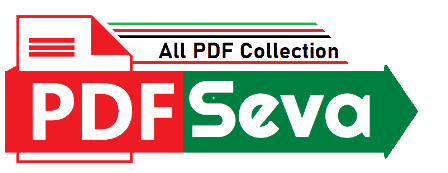
ad here
828 Download
2 years ago
French Revolution Class 9 PDF Free Download, Mcq, Questions, Ncert, The French Revolution Class 9 Notes Pdf, Answers, Notes.
The French Revolution, The Russian Revolution, And The Rise Of Nazism Are All Discussed In Section I. All These Events Had A Significant Role In Shaping The Modern World In Various Ways.
French Revolution Is The Subject Of Chapter 1. The Concepts Of Liberty, Freedom, And Equality Are Often Taken For Granted In Modern Society. However, We Must Constantly Remind Ourselves That These Concepts Also Have A Past. You May Read A Little Portion Of That History By Looking At The French Revolution. The French Monarchy Was Abolished As A Result Of The French Revolution. A Privilege-based Society Made Way For A New Form Of Government.
The Coming Of A New Era Was Signalled By The Declaration Of Human Rights During The Revolution. The Notion That Every Person Had Rights And Could Assert Equality Was Incorporated Into A New Political Vocabulary. The Core Concepts Of The New Era Were Equality And Freedom, Although They Were Reinterpreted And Rethought In Various Ways Across Nations.
The Anti-colonial Movements In Africa, South America, India, And China Produced Ideas That Were Ground-breaking And Unique, But They Did So In A Tongue That Only Became Widely Spoken In The Late Eighteenth Century.
You May Read About The Advent Of Socialism In Europe And The Dramatic Events That Forced The Tsar, Nicholas Ii, To Abdicate In Chapter Ii. The Russian Revolution Sought A Different Kind Of Social Change. The Issue Of Economic Equality And The Welfare Of Workers And Peasants Were Raised. The Chapter Will Discuss The Changes Made By The New Soviet Government,
The Issues It Encountered, And The Actions It Took. While Soviet Russia Advanced Industrialization And Mechanisation Of Agriculture, It Denied Citizens’ Rights That Were Crucial To A Democratic Society’s Operation. However, Other Anti-colonial Movements Across The World Included Socialist Ideals. Although Socialism Is In Crisis Today And The Soviet Union Has Broken Apart, It Has Played A Significant Role In Shaping Modern Society During The Twentieth Century.
Germany Is Where Chapter Iii Will Take You. It Will Go Into Hitler’s Ascent And Nazi Politics. You Will Read About Schools And Concentration Camps, As Well As The Children And Women In Nazi Germany. You’ll Learn How Nazism Fought Tenaciously Against Democracy And Socialism,
How It Used A Long History Of Anti-jewish Sentiments To Persecute Jews, And How It Denied Other Minorities The Right To Live. However, The Rise Of Nazism Is Not Only The Result Of A Few Isolated Incidents, Massacres, And Murders. It Concerns The Operation Of A Complex And Terrifying System That Functioned At Several Levels. Some People In India Were Inspired By Hitler’s Ideas, While The Majority Watched The Rise Of The Nazis With Horror.
The Development Of Freedom And Democracy Is Just One Aspect Of The History Of The Modern World. Additionally, It Has Been A Tale Of Tyranny And Violence, Of Destruction And Death.
The City Of Paris Was In Alarm On The Morning Of July 14, 1789. The King Had Ordered The Movement Of Troops Into The City. There Were Rumours That He Would Soon Give The Order For The Army To Start Shooting At The Citizens. In Front Of The Town Hall, 7,000 Men And Women Gathered And Made The Decision To Establish A People’s Militia. In Search Of Weapons, They Broke Into A Number Of Government Buildings.
Finally, Several Hundred People Marched Toward The Eastern Part Of The City And Stormed The Bastille, A Fortress-prison Where They Hoped To Find Ammunition That Had Been Hoarded. Even Though There Were Only Seven Prisoners, The Commander Of The Bastille Was Killed In The Ensuing Armed Conflict.
However, Since It Represented The Despotic Power Of The King, The Bastille Was Despised By Everybody. The Fortress Was Destroyed, And Anyone Who Want To Own A Memento Of Its Destruction Could Purchase Its Stone Fragments In The Markets.
More Rioting Occurred In Both Paris And The Countryside In The Days That Followed. The Majority Of People Were Protesting The High Cost Of Bread. Though Most People At The Time Could Not Foresee This Outcome, Historians Who Looked Back On This Period Many Years Later Saw It As The Start Of A Series Of Events That Ultimately Led To The Execution Of The French King. What Caused This, And How?
Louis Xvi Of The Bourbon Family Of Kings Ascension To The French Throne In 1774. He Married Marie Antoinette, An Austrian Princess, When He Was 20 Years Old. The New King Came Into Power To An Empty Treasury. The Financial Resources Of France Had Been Depleted By Years Of Conflict. The Price Of Upkeep For An Extravagant Court At The Enormous Palace Of Versailles Was Added To This.
France Helped The Thirteen American Colonies Win Their Independence From Their Common Enemy, Britain, During The Reign Of Louis Xvi. A Debt That Had Already Risen To More Than 2 Billion Livres Was Increased By The War By More Than A Billion Livres.
Lenders That Previously Gave The State Credit Have Started To Charge 10% Interest On Loans. As A Result, The French Government Was Forced To Spend A Growing Portion Of Its Budget On Interest Payments Alone.
The State Was Compelled To Increase Taxes To Cover Its Regular Expenses, Such As The Cost Of Maintaining An Army, The Court, Running Government Offices Or Universities. Even This, Though, Would Not Have Been Sufficient. Only Those Who Belonged To The Third Estate In Eighteenth-century French Society Were Required To Pay Taxes.
The Feudal System, Which Originated In The Middle Ages, Included The Society Of Estates. The French Institutions And Society Before To 1789 Are Often Described As Belonging To The “Old Regime.”
Fig. 2 Illustrates The Organization Of The French Estate System. Around 90% Of The Population Were Peasants. However, Very Few Of Them Were The Owners Of The Land They Farmed. Nobles, The Church, And Other Wealthier Third Estate Members Owned Around 60% Of The Land.
The Clergy And Nobility, Who Make Up The First Two Estates, Were Born With A Number Of Privileges. Exemption From Paying State Taxes Was The Most Significant Of Them. The Nobles Continued To Benefit From Feudal Privileges. Feudal Dues Were Among Them, Which They Collected From The Peasants. Peasants Were Required To Provide Services To The Lord By Labour In His Fields And Home, Military Service, Or Road Construction.
Finally, All Members Of The Third Estate Were Required To Pay Taxes To The State. The Church Also Collected Its Portion Of Taxes From The Peasants Known As Tithes. These Included The “Taille” Direct Tax As Well As Other Indirect Taxes Imposed On Goods Used In Daily Life Like Salt And Tobacco. The Third Estate Alone Had The Burden Of Funding Governmental Operations Via Taxes.
| PDF Name: | French-Revolution-Class-9 |
| Author : | Live Pdf |
| File Size : | 2 MB |
| PDF View : | 44 Total |
| Downloads : | 📥 Free Downloads |
| Details : | Free PDF for Best High Quality French-Revolution-Class-9 to Personalize Your Phone. |
| File Info: | This Page PDF Free Download, View, Read Online And Download / Print This File File At PDFSeva.com |
Copyright/DMCA: We DO NOT own any copyrights of this PDF File. This French Revolution Class 9 PDF Free Download was either uploaded by our users @Live Pdf or it must be readily available on various places on public domains and in fair use format. as FREE download. Use For education proposal. If you want this French Revolution Class 9 to be removed or if it is copyright infringement, do drop us an email at [email protected] and this will be taken down within 24 hours!
© PDFSeva.com : Official PDF Site : All rights reserved
